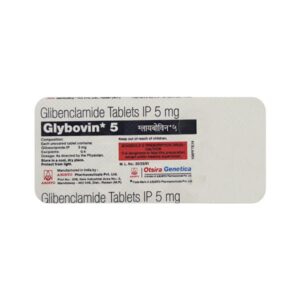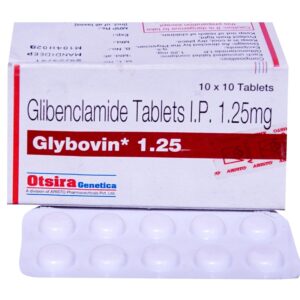GLIBENCLAMIDE
GLIBENCLAMIDE: Glibenclamide, also known as glyburide, is an oral medication used to treat type 2 diabetes. It belongs to a class of drugs called sulfonylureas. Glibenclamide helps control blood sugar levels by stimulating the release of insulin from the pancreas and increasing the sensitivity of the body’s tissues to insulin.
The drug is typically taken once or twice daily before meals. The dose may vary depending on individual response and the recommendation of a healthcare professional. It is important to follow the prescribed dosage and instructions closely.
Glibenclamide is generally well-tolerated, but like any medication, it can cause side effects. Common side effects include diarrhea, nausea, stomach upset, skin rash, and allergic reactions. It may also cause low blood sugar (hypoglycemia), which can lead to symptoms such as dizziness, confusion, sweating, and shaking. In rare cases, glibenclamide can cause more severe hypoglycemia or serious allergic reactions.
It is important to be aware that glibenclamide is not suitable for everyone. It should not be used in individuals with type 1 diabetes or diabetic ketoacidosis. It is also contraindicated during pregnancy and breastfeeding.
Glibenclamide may interact with other medications, including certain antibiotics, anticoagulants, and antifungal drugs. It is crucial to inform healthcare professionals about all the medications, supplements, and medical conditions one has to avoid any potential drug interactions or contraindications.
As always, it is recommended to consult with a healthcare professional for personalized advice and to discuss any concerns or questions related to glibenclamide or any other medication.



